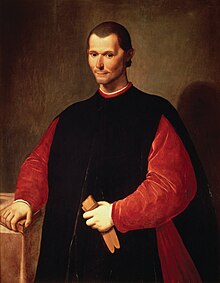2. Nicholas Copernicus (1473-1543) was important to astronomy because he served as a pioneer in drifting away from the geocentric model of the universe. He dove tediously into the tables and mathematics of the previous, geocentric model of the universe and found enlightenment in geometry. He thereby successfully determined the distances between planets and the Sun, as well as their relative orbits around our home star. Though he was not able to perfectly model our universe, he was courageous enough to eventually publish a book on his findings—one that helped future scientists slough their way through tedious trial and error necessary to the knowledge we have today.
3. A. 1st Event: The Spanish Conquest (1519-1521):
The Spanish Conquest began shortly after Christopher Columbus’s discovery of America(s) when he sailed the ocean blue in 1492. Hernan Cortes and Francisco Pizarro were two famous conquistadors from the era, both vital to the destruction of the Aztec and Inca civilizations.
2nd Event: Ferdinand and Isabella unite to become the ‘Catholic Monarchs of Spain’ (1479):
Ferdinand of Aragon and Isabella of Castile, “royal cousins,” were married in 1469 in an effort to unite Spain during a time of war and turmoil. It wasn’t until 1479 that the two were officially announced King and Queen of Aragon and Castile, thanks to the Treaty of Alcáçovas, and began restoring the country’s political destruction and royal authority.
B. Niccolò Machiavelli was a pioneer in modern day political science and humanitarian thinking. Born in May of 1469 (and died June 1527), the Italian published an agelessly famous work, “The Prince,” assessing that “the ends justify the means.” His progressive thought challenged the Roman Catholic Church’s most fundamental doctrines and authority. Though he was not an astronomer, his audacity in “The Prince” shook the Church’s near perfect foundation and foreshadowed further changes (i.e. transition from the accepted geocentric model to heliocentric).

4. First, I always think it’s interesting to look at other events happening around the world when learning about history—which is why I enjoyed question #3B in particular. On first glance, Machiavelli’s book seems totally irrelevant to astronomy (after all, he was a thinker, a philosopher, NOT an astronomer). However, looking at the succession of events, starting with the Catholic Church’s banning of “The Prince” on the basis of challenged authority, we can see the beginning of the crumbling that eventually lead to confrontations with the Church in the early 1600’s and its slow transition to the heliocentric model of the universe. Second, it’s fascinating to see the differences that cultures make in science. While Copernicus was tucked away in Europe busily tacking away at geometric models of orbital paths and distances from various planets to the Sun, things were heating up in the Americas as entire civilizations crumbled. The context leavens our understanding of just how significant and advanced thoughts like Copernicus’s truly were.
Works Consulted:
“A Timeline of Contemporary European Events, 1400 to 1550.” Illuminating the Renaissance. British Library Board, n.d. Web. 09 Feb. 2016.
Bennett, Jeffrey O. “The Copernican Revolution.” The Cosmic Perspective: Solar System. 7th ed. Boston: Pearson, 2014. 64. Print.
“Historical/Cultural Timeline – 1500.” Historical/Cultural Timeline – 1500. College of Education, University of Houston, n.d. Web. 09 Feb. 2016.
“Niccoló Machiavelli.” Wikipedia. Wikimedia Foundation, n.d. Web. 09 Feb. 2016.
“Nicolaus Copernicus.” Wikipedia. Wikimedia Foundation, n.d. Web. 09 Feb. 2016.
Spain – THE GOLDEN AGE – Ferdinand and Isabella.” Spain – THE GOLDEN AGE – Ferdinand and Isabella. U.S. Library of Congress, n.d. Web. 09 Feb. 2016.
“Timeline of the Conquest.” University of Michigan. University of Michigan, n.d. Web. 09 Feb. 2016.
